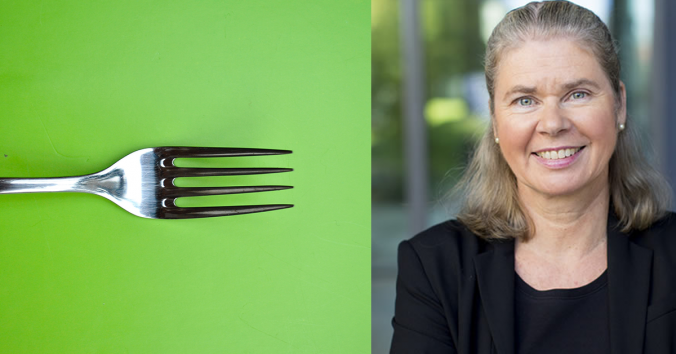To reflect ethically on what we eat has been part of Western culture for centuries. In pre-modern times, the focus was mainly on the consumption of food, although it varied whether the emphasis was on the amount of food one should eat (as in ancient Greece) or on what kind of food one was allowed to eat (as in the Old Testament).
Modern food ethics has instead focused on the production of food, emphasizing aspects of animal ethics and environmental ethics. In a new article, I take a broader perspective and discuss both the production and consumption of food and further incorporate the meal as an important part of my food ethics analysis.
I identify four affected parties in relation to the production and consumption of food, namely, animals, nature, producers and consumers. What ethical values can be at stake for these parties?
For animals, an important value is welfare; not being exposed to pain or stress, but provided opportunities for natural behavior. For nature, important values are low negative impact on the environment and sustainable climate. For producers, ethical values at stake concern fair salaries and safe working conditions. For consumers, finally, important values are access to healthy food and the right to autonomous food choices. Apart from that, food can also be seen as an important value in pursuit of a good life.
Evidently, several ethical values are at stake when it comes to the production and consumption of food. Furthermore, these values often conflict when food choices are to be made. In such situations, a thorough weighing of values must be performed in order to find out which value should be given priority over another.
A problem with today’s food debate is that we tend to concentrate on one value at a time, without putting it in the perspective of other aspects. The question of how our food choices affect the climate has gained a lot of interest, at the expense of almost all other aspects of food ethics.
Many have learned that beef production can affect the climate negatively, since grazing cattle give rise to high levels of methane. They therefore choose to avoid that kind of meat. On the other hand, grazing animals can contribute to biodiversity as they keep the landscape open, which is good for the environment. Breeding chickens produces low levels of methane, but here the challenges concern animal welfare, natural behavior and the use of chemicals in the production of bird feed.
To replace meat with vegetables can be good for your health, but imported fruits and vegetables can be produced using toxins if they are not organically farmed. Long transports can also affect the climate negatively.
For these reasons, it can be ethically problematic to choose food based on only one perspective. Ethics is not that simple. We need to develop our ability to identify what values are at stake when it comes to food, and find good reasons for why we choose one sort of food instead of another. In the article, I develop a more comprehensive food ethical outlook by combining four well-known ethical concepts, namely, duties, consequences, virtues and care.
Duties and consequences are often part of ethical arguments. However, by including also virtues and care in my reasoning, the meal and the sense of community it gives rise to appear as important ethical values. Unfortunately, the latter values are at risk today when more and more people have their own individualized food preferences. During a meal, relations are developed, which the ethics of care emphasizes, but the meal is also an arena for developing virtues, such as solidarity, communication and respect.
It is hard to be an ethically aware consumer today, partly because there are so many aspects to take into account and partly because it is difficult to get reliable and trustworthy information upon which we can base our decisions. However, that does not mean that it is pointless to reflect on what is good and right when it comes to food ethical dilemmas.
If we think through our food choices thoroughly and avoid wasting food, we can do a lot to reach well-grounded food choices. Apart from that, we also need brave political decisions that can reduce factory farming, toxins, transports and emissions, and support small-scale and organic food production. Through such efforts, we might all feel a little more secure in the grocery shop, when we reflect on the question: What shall we eat?

Written by…
Anna T. Höglund, who is Associate Professor of Ethics at the Centre for Research Ethics & Bioethics and recently wrote a book on food ethics.
Höglund, Anna T. (2020) What shall we eat? An ethical framework for well-grounded food choices. Journal of Agricultural and Environmental Ethics. DOI: 10.1007/s10806-020-09821-4
We like real-life ethics



0 Comments
1 Pingback